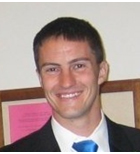Overview of the NNSA Office of Defense Nuclear Nonproliferation and the Graduate Nonproliferation Fellowship Program
| Event Date: | September 22, 2010 |
|---|---|
| Speaker: | Mark Niehaus Engineer Pacific Northwest National Laboratory |
| Time: | 3:30 p.m. |
| Location: | ARMS 1109 |
Abstract:
The National Nuclear Security Administration (NNSA), established by Congress in 2000 as a separately organized agency within the U.S. Department of Energy (DOE), is responsible for the management and security of the nation’s nuclear weapons, nuclear nonproliferation, and naval reactor programs. It also responds to nuclear and radiological emergencies in the United States and abroad. Additionally, NNSA federal agents provide safe and secure transportation of nuclear weapons and components and special nuclear materials along with other missions supporting the national security. Pacific Northwest National Laboratory (PNNL) is one of the DOE's ten national laboratories, managed by DOE's Office of Science. PNNL also performs research for other DOE offices as well as government agencies, universities, and industry to deliver breakthrough science and technology to meet today's key national needs.
Each year the NNSA Nonproliferation Graduate Fellowship Program, administered by Pacific Northwest National Laboratory, offers a selected group of individuals with specialized training the opportunity to work with NNSA and their constituents to gain practical experience in the field, build enduring relationships for the future and make significant contributions to this international field of endeavor. An overview of the organization of the Defense Nuclear Nonproliferation branch of the NNSA and descriptions of some of the major projects that NA-20 is undertaking will be given. An overview of the requirements and application process for the NGFP Fellowship will also be presented.
Brief biography:
Mark currently works with Pacific Northwest National Laboratory (PNNL) in the National Security Internship Program’s Post-Master Rotation. His rotations include the Nuclear Materials & Engineering Analysis and the Safeguards & Nonproliferation Implementation groups. His projects include modeling nuclear reactor fuel depletion and core behavior for international safeguards.
Previously, Mark worked at the U.S. Department of Energy’s Savannah River Site with PNNL in the Nonproliferation Graduate Fellowship Program. Mark worked directly with the National Nuclear Security Administration’s (NNSA) Global Threat Reduction Initiative (GTRI) on U.S.-Origin highly enriched uranium (HEU) nuclear fuel removals where he was involved with HEU removals from Turkey, Taiwan, Indonesia, Japan, and Chile. Mark was also the lead on development and implementation of a comprehensive nuclear fuel transportation training program in coordination with GTRI, South Africa, and the International Atomic Energy Agency. Before his time with PNNL, Mark worked with the Bechtel Marine Propulsion Corporation at Bettis Laboratory as a Nuclear Design Engineer. While at Bettis, Mark was involved with the development of systems for remote sensing in high radiation environments, and the design and testing of systems for handling radiologically contaminated materials for disposal.
Mark received a M.S. in Nuclear Engineering from The Ohio State University and a B.S. in Mechanical Engineering with a minor in Physics from Ohio Northern University. His graduate research focused on thermal hydraulics and utilizing temperature sensors to measure flow velocities.
2010-09-22 15:30:00 2010-09-22 16:30:00 America/Indiana/Indianapolis Overview of the NNSA Office of Defense Nuclear Nonproliferation and the Graduate Nonproliferation Fellowship Program ARMS 1109

